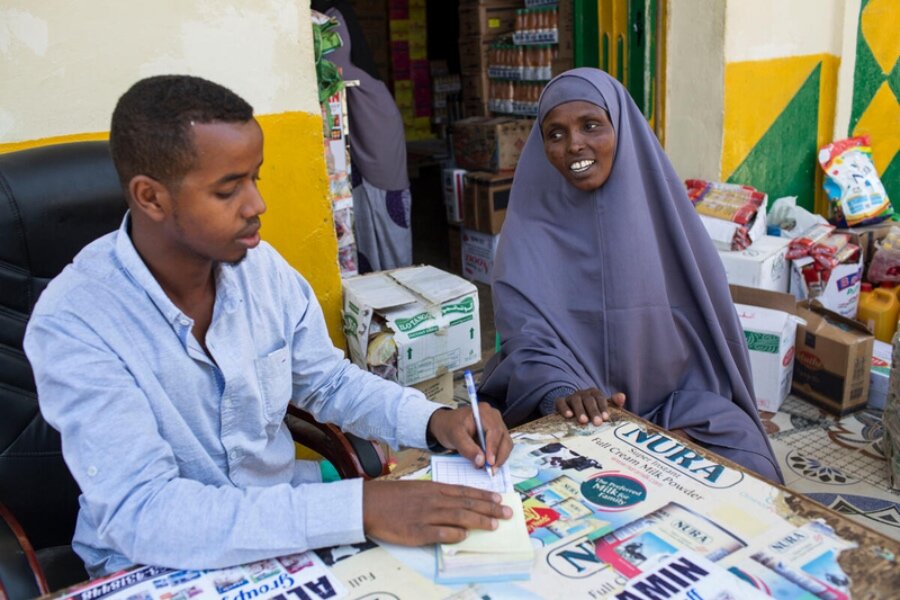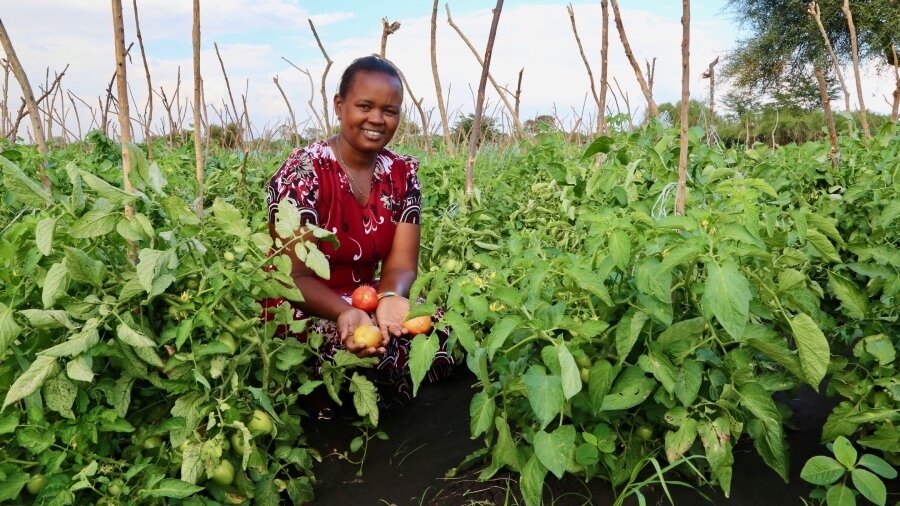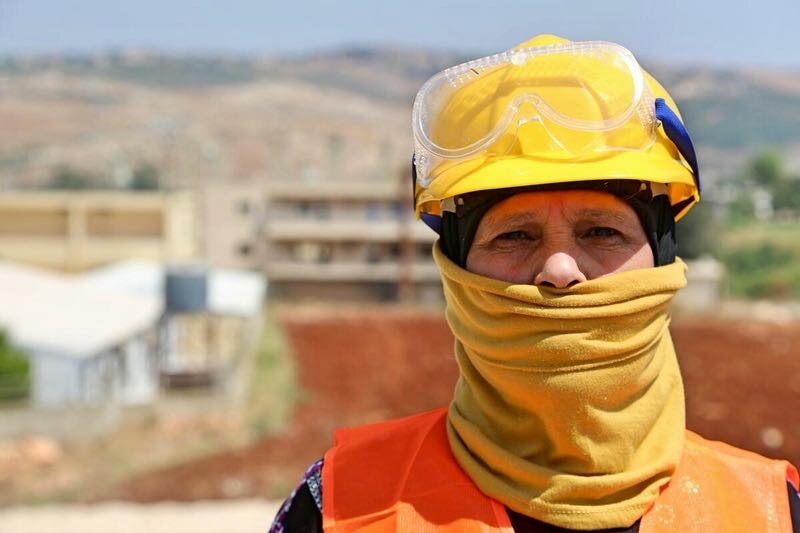Global food crisis: Cash offers hope as people feel the heat
As the United Nations General Assembly gets underway today amid an unprecedented global hunger crisis, cash offers one vehicle to reach the world’s most vulnerable people in ways that can lift communities and economies.
While skyrocketing food prices have fallen recently, they still remain high, with the war in Ukraine driving up the cost of food, fuel and fertilizer. The fallout risks intensifying hunger among the world’s most vulnerable people — compounding the devastating effects of climate change and the COVID-19 pandemic on their livelihoods and food security.
The conflict continues to leave many farmers in Ukraine, a top global grain producer, struggling to export their harvests. Disrupted trade means food that is available on shelves around the world is prohibitively expensive for an increasing number of people.

In response, WFP is scaling up its cash activities, not only to prevent further hunger but also to unleash money’s potential to change lives and reduce dependence on humanitarian assistance. Over the first half of 2022 alone, WFP has delivered US$1.6 billion in cash to 37 million people in 70 countries.
In crisis-hit Somalia, for example, vulnerable children are bearing the brunt of global shortages of specialized foods aimed to prevent malnutrition. A devastating drought has deepened already alarming hunger levels, increasing chances of the Horn of Africa country slipping into famine.

WFP is sending money to people in drought hotspots, to spend on essentials like livestock, water and food. That money stays in-country, circulating in the local economy.
In places like Lebanon, where food is available but costly, cash transfers are an efficient option for increasing access to it. That’s because, quite simply, with more money people can buy more food.
Beyond saving lives
Every cash transfer is an opportunity to save and change lives, putting people in charge of buying the essential goods and services they need. But the benefits of cash don’t stop there – when people decide to invest in livelihoods or other assets, they help themselves pursue a pathway out of hunger.
In drought-hit Kenya, for instance, Amina bought seeds through a WFP loan scheme. The money she received allowed her to buy petrol for her water pump – which in turn allowed her field of tomatoes to flourish.

People can decide themselves how to spend their cash. In places like Moldova, many like Ludmilla prioritize paying household bills that have become increasingly unaffordable amid soaring gas prices. Gas is their top expenditure. Without it, they cannot heat homes or stoves.
Such stories are echoed across our emergency operations in Ukraine and Moldova, where since April WFP teams have helped families register themselves, then transfer money to them, all within 72 hours – a WFP record.
“When we talk about cash, we’re talking about efficient and transformational humanitarian assistance,” said Cheryl Harrison, WFP’s Deputy Director for Cash-Based Transfers. “Cash is agile, and that’s why it’s now 35 percent of WFP’s global portfolio.”

Beyond cash's immediate, life-changing benefits, it offers longer-term gains for economies. When WFP donor dollars are spent as Lebanese lira, Somali shillings or Yemeni rials, they create more jobs and stronger demand for goods and services.
“This project helped in reducing unemployment,” said Bassem Attar, a retailer contracted by WFP in Syria to sell food to people receiving WFP cash. “We used to have only five employees. Now we have 12 employees working two shifts,” with the expansion of WFP’s cash programme.
Prioritizing women and helping them get their own bank accounts is another way WFP ensures its cash interventions deliver lasting change – especially during crises where women as well as girls are often the most adversely affected.
WFP initiatives that allow women to save, send and spend money help make them financially resilient – allowing them to access savings and loans, and to build a future for themselves and their families.
“Not only are we putting more money in the hands of more women, but we’re using it to drive financial inclusion,” said WFP Deputy Executive Director Valerie Guarnieri. “When we channel cash directly to them, and use cash as an opportunity to connect those women to financial services, then the world changes for them.”

In Afghanistan, vocational training activities mean women like Laila, a mother of five, can learn new skills while being paid. Their savings can help them weather the country’s crisis, and hopefully increase their independence and employment opportunities.
“I am really happy to be here. We are very poor, and I am willing to learn how to sew and write my name,” says Laila. “I can control my future and not need to seek help from anyone.”
There will always be a need for direct food provision in some contexts, such as life-saving nutrition support. But in other contexts, especially where essential goods and services are available, giving people more money can be an appropriate, cost efficient and empowering response.


